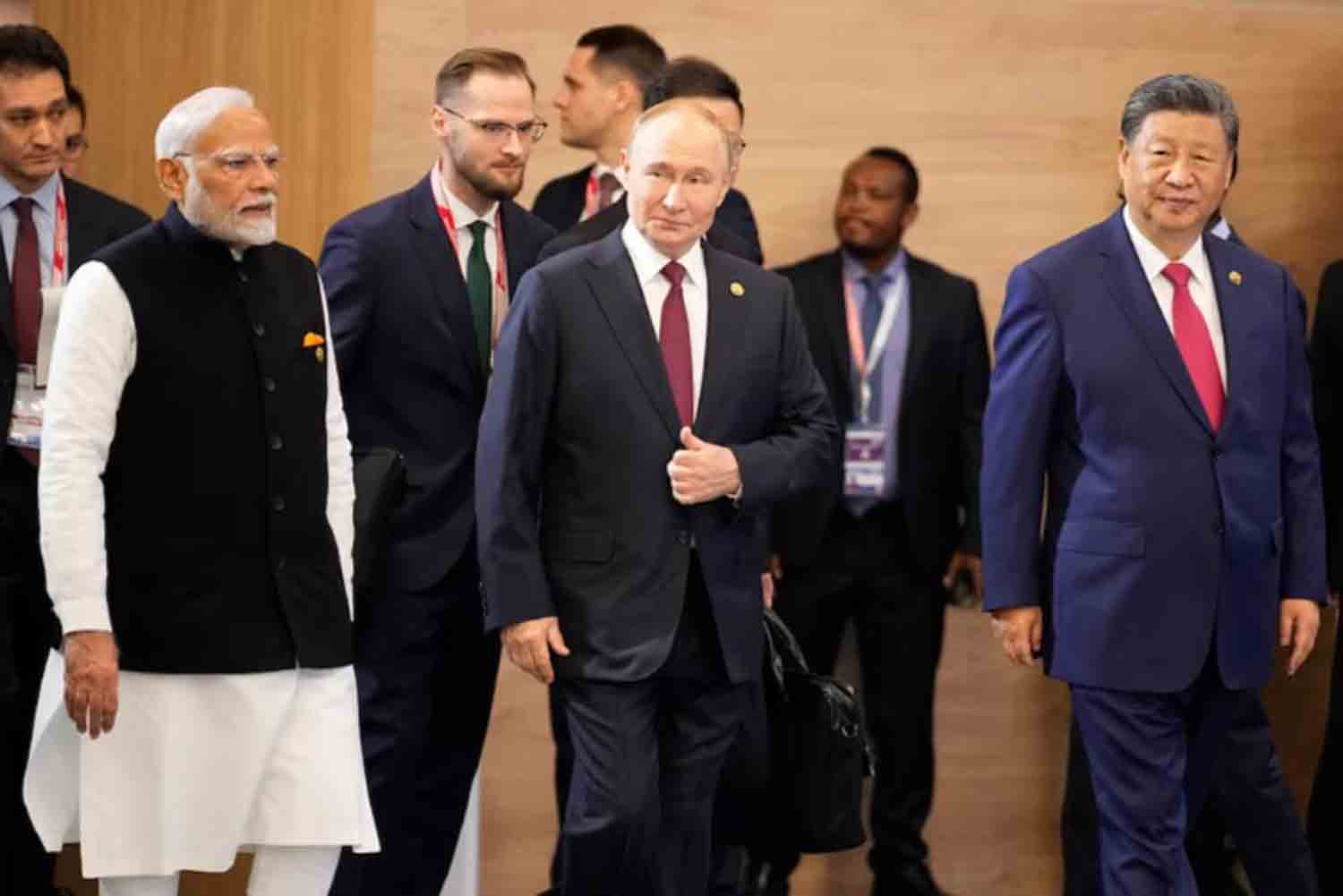Indian Prime Minister Narendra Modi and Chinese President Xi Jinping engaged in their first formal discussions in five years on Wednesday, indicating a potential thaw in relations between the two Asian powers, which had been adversely affected by a fatal military confrontation in 2020.
The leaders convened during the BRICS summit in Kazan, Russia, as reported by both the Indian government and Chinese state media. This meeting occurred shortly after New Delhi announced a resolution to the four-year military standoff along their contested Himalayan border.
The relationship between these two nuclear-armed nations, which are also the most populous in the world, has been tense since a clash in 2020 resulted in the deaths of 20 Indian and four Chinese soldiers along the largely undefined border in Ladakh. In response to the ongoing tensions, both countries have significantly bolstered their military presence in the region, deploying tens of thousands of additional troops and equipment over the past four years.
Modi and Xi have not engaged in formal bilateral discussions since their last summit in October 2019, which took place in Mamallapuram, India. Although both leaders attended various multilateral events, their interactions have been limited. They had a brief exchange during the G20 summit in Bali in November 2022, where they shared pleasantries. Another conversation occurred on the sidelines of the BRICS summit in Johannesburg in August 2023, but differing accounts of the dialogue suggested a lack of consensus between the two nations.
Xi’s absence from the G20 summit in New Delhi the following month was perceived as a further deterioration in their relationship. However, diplomatic initiatives have gained traction recently, particularly after the foreign ministers of both countries met in July and committed to enhancing discussions aimed at alleviating border tensions. Given that India has linked the improvement of broader political and business relations to resolving the border dispute, the upcoming discussions between the two leaders are anticipated to lead to increased Chinese investment in India.
New Delhi has heightened its examination of investments originating from China, suspended direct flights between the two nations, and effectively halted the issuance of visas to Chinese citizens since the clashes in Ladakh. Neither New Delhi nor Beijing, which affirmed the border agreement on Tuesday, has disclosed specifics regarding the resolution of the stand-off as per the accord reached this week.
An Indian military official informed Reuters that the agreement will enable both parties to patrol disputed areas along the border according to a mutually established timetable to avert conflicts.
Discover more from Defence Talks | Defense News Hub, Military Updates, Security Insights
Subscribe to get the latest posts sent to your email.





